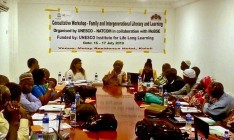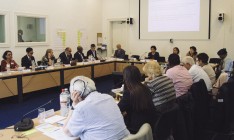On 15 November 2019 at UNESCO’s 40th General Conference in Paris, the Member States agreed to adopt a new UNESCO Strategy for Youth and Adult Literacy (2020-2025).
For UNESCO’s Education Sector, constituted by its Headquarters, its institutes, and field offices around the world, this Strategy will be a guiding framework for the promotion of youth and adult literacy in the coming years.










